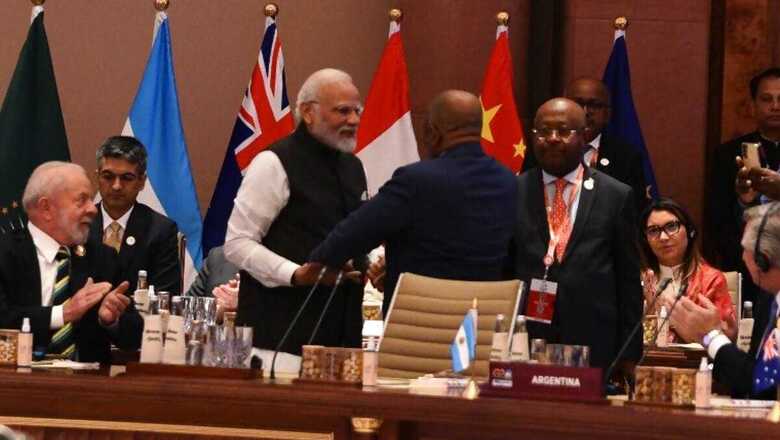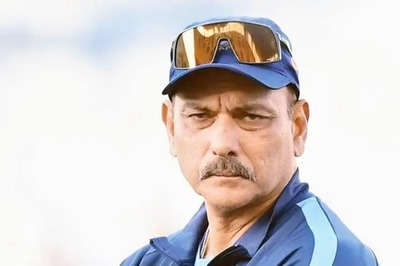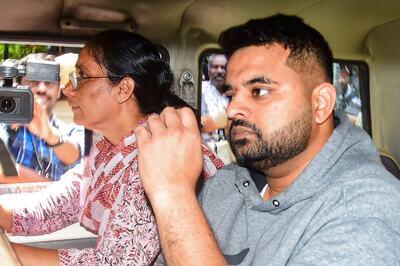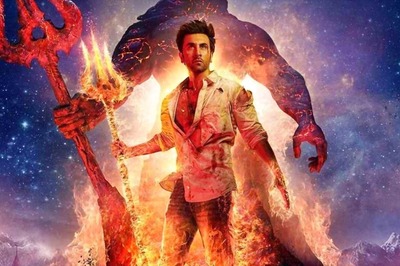
views
Africa, often considered the world’s oldest inhabited continent, has long grappled with the legacy of colonialism and development challenges. Data from the World Atlas reveals that Africa has the lowest GDP per capita of just $1,809 compared to the world average of $10,300. The continent’s economic landscape remains predominantly agricultural, with two-thirds of the working-age population employed in the sector, contributing 20% to 60% of the GDP in African nations, as reported by National Geographic.
Political instability, civil conflicts, terrorism, piracy, and fragile states have characterised Africa’s recent history. The Armed Conflict Location and Event Data Project (ACLED) identified Africa as the most conflict-ridden continent, mapping 520 non-state armed conflicts in 28 different African countries between 1989 and 2013. A significant portion of these conflicts, 406 to be precise, emanated from just six countries: Nigeria, Somalia, Sudan, Ethiopia, Kenya, and the Democratic Republic of the Congo, accounting for over 60,000 fatalities or 76% of total conflict-related casualties.
SIGNS OF CHANGE
However, Africa is now displaying signs of positive change. ACLED data indicates a decline in the number of non-state armed conflicts and fatalities in recent years. Reflecting this trend, the continent as a whole exhibits promising prospects for substantial economic growth. Africa is rich in energy and mineral resources, with 30% of the world’s mineral reserves, 12% of oil reserves, and 8% of natural gas reserves, according to the United Nations Environment Programme. The continent boasts the world’s largest reserves of cobalt, diamonds, platinum, and uranium, along with 90% of chromium and platinum reserves and 40% of gold reserves.
African nations have come together to establish the African Continental Free Trade Area (AfCFTA), the world’s largest free trade zone, which officially commenced its first phase in January 2021. AfCFTA aims to create a single continental market comprising 55 countries with a combined GDP of $3.4 trillion.
Although Africa’s economies are projected to contract by 1.4% due to the aftermath of the Covid-19 pandemic, STATISTA data analysis anticipates significant growth, with African GDP projected to increase from $2.449 trillion in 2020 to $4.288 trillion in 2027, a remarkable 75% surge.
The increase in real GDP growth has led to an uptick in defence expenditures among major economies. While Africa’s military spending remains modest in a global context, it surpasses the world average by a significant margin in most African countries. Post-Cold War, per capita military expenditure worldwide increased by approximately 26%, but in Africa, it surged by 30%, says an (MP-IDSA) analysis.
Data from the World Bank and the SIPRI Military Expenditure Database illustrate the rising trend in military expenditure among major African economies and the continent as a whole. African defence expenditure climbed from $33.2 billion to $43.2 billion, marking a 28.6% increase from 2010 to 2020, with Africa experiencing the highest growth in military expenditure in 2020 at 5.1%, followed by Europe (4%), the Americas (3.9%), and Asia and Oceania (2.5%). Egypt, Nigeria, South Africa, Morocco, and Algeria, even the Middle East and Sub-Saharan African countries, all are expected to see defence budgets going up.
Despite its historical challenges, Africa, with stabilising nations, burgeoning economies, and increased military spending aimed at securing national interests and combating insurgent groups and non-state actors, is emerging as a promising defence market. India’s move to institutionalise the IADD is a strategic step in this direction.
INDIA’S OBJECTIVES AND AFRICAN COLLABORATION
India’s initial defence export target is indicative of its moderate aspirations, with a goal of reaching $5 billion by 2025. The African continent has the potential to significantly contribute to achieving or even surpassing this target. A recent research report from India’s Exim Bank suggests that India has already emerged as the leading defence exporter to countries such as Mauritius, Mozambique, and Seychelles between 2017 and 2021.
These three nations collectively accounted for 13.9% of India’s arms exports during this period. The report advocates for India to become a central hub for African countries’ marine, aerospace, and defence needs, stressing empowerment through training, capacity building, and humanitarian assistance over a purely needs-based approach.
THE GLOBAL SOUTH EDGE
India has emerged as one of the leading voices of the Global South, taking a leadership position, and it directly correlates with our relations with the nations on the world’s second-largest trans-continental group with African nations as its part. Recently, India successfully pushed for the inclusion of the African Union (AU) into the G20 group. G20 is one of the most powerful blocs of 19 countries and the European Union. It together represents 85% of the world’s GDP and 75% of the global trade.
Prime Minister Narendra Modi wrote to G20 leaders in June 2023 for it. He proposed the idea of giving the AU full membership of G20 during the Delhi Summit in September. Subsequently, on September 9, AU was admitted into the group, taking the count to 21 members.
India shares historical ties with many nations of the African continent. The Indian impact is deeply rooted there and grew over the centuries with Indian indentured labourers being sent to many African countries during the colonial times. Mahatma Gandhi, architect of India’s freedom movement, began his journey from an African nation only, South Africa.
INDIA’S CURRENT OUTREACH
India’s current approach follows a similar path, and defence agreements are not going to be an exception. Prime Minister Narendra Modi, during his visits to South Africa, Rwanda, and Uganda in 2018, underscored his government’s commitment to transforming the African continent into a defence partner.
India has institutionalised its defence dialogue with the nations of the African continent and held the second edition of the India-Africa Defence Dialogue (IADD) as part of the DefExpo 2022.
The country stresses “new areas of convergence for defence engagements”, including capacity building, training, cybersecurity, maritime security, and counterterrorism, as highlighted by defence minister Rajnath Singh, recently. He stressed, “We do not believe in making or becoming a client or satellite state. When we partner with any nation, it is based on sovereign equality and mutual respect. Forging relations comes naturally to India as we work towards mutual economic development”.




















Comments
0 comment